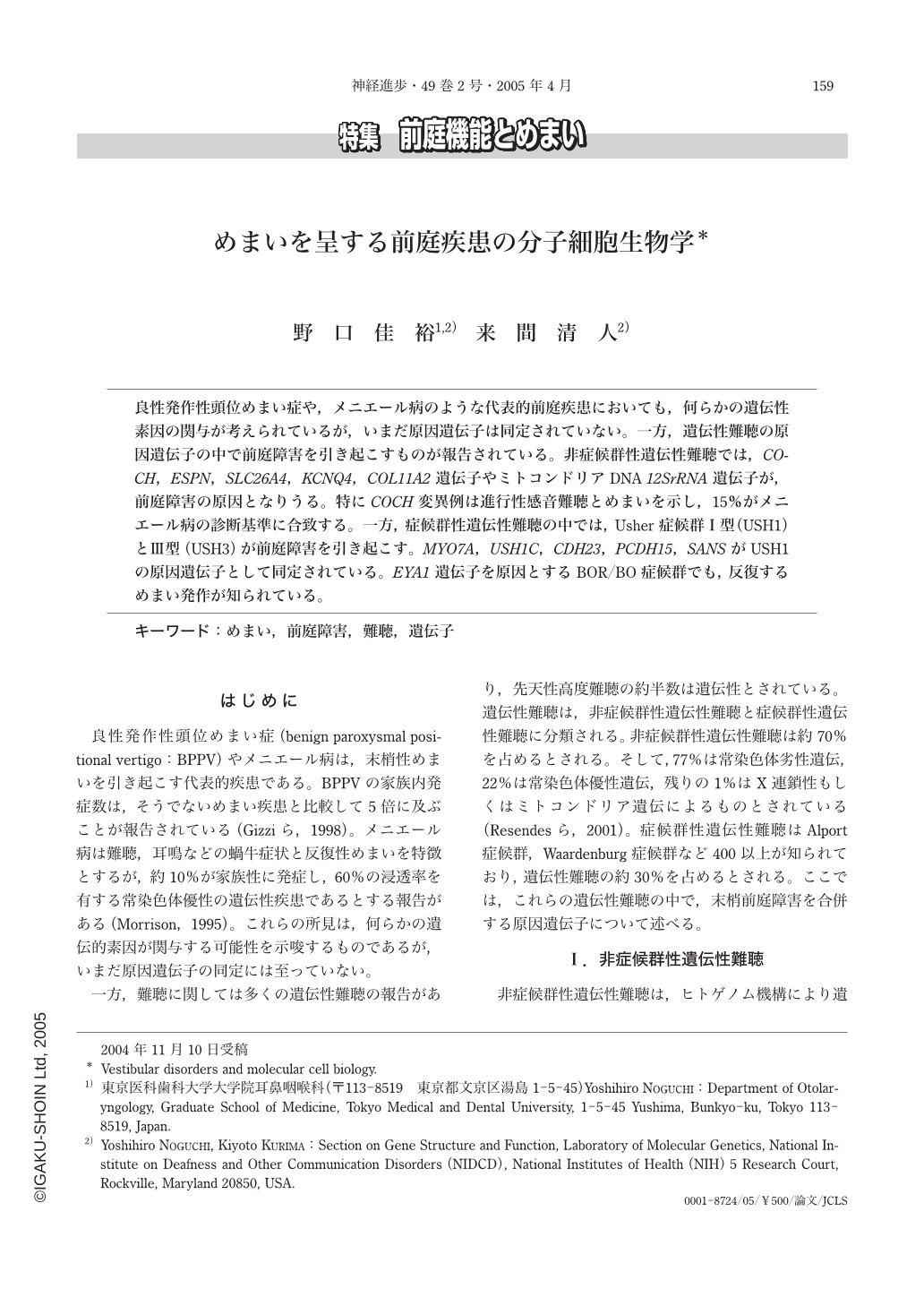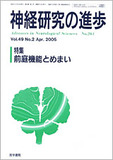Japanese
English
- 有料閲覧
- Abstract 文献概要
- 1ページ目 Look Inside
良性発作性頭位めまい症や,メニエール病のような代表的前庭疾患においても,何らかの遺伝性素因の関与が考えられているが,いまだ原因遺伝子は同定されていない。一方,遺伝性難聴の原因遺伝子の中で前庭障害を引き起こすものが報告されている。非症候群性遺伝性難聴では,COCH,ESPN,SLC26A4,KCNQ4,COL11A2遺伝子やミトコンドリアDNA 12SrRNA遺伝子が,前庭障害の原因となりうる。特にCOCH変異例は進行性感音難聴とめまいを示し,15%がメニエール病の診断基準に合致する。一方,症候群性遺伝性難聴の中では,Usher症候群Ⅰ型(USH1)とⅢ型(USH3)が前庭障害を引き起こす。MYO7A,USH1C,CDH23,PCDH15,SANSがUSH1の原因遺伝子として同定されている。EYA1遺伝子を原因とするBOR/BO症候群でも,反復するめまい発作が知られている。
Although genetic components are likely to be involved in the etiology of peripheral vestibular disorders, such as benign paroxysmal positional vertigo and Meniere's disease, the causative genes for vestibular disorders alone have not been identified. Mutations of some genes that cause deafness, however, are known to cause vestibular dysfunctions. Among the causative genes for hereditary non-syndromic deafness, mutations of COCH cause progressive sensorineural hearing loss and vestibular symptoms. Moreover, 15% of the patients with COCH mutations have the impairment clinically met the criteria for definite Meniere's disease. ESPN mutations are responsible for valance disorder and/or vestibular areflexia. A patient with a SLC26A4 mutation has fluctuating hearing loss and repeatable vertigo attacks. Other causative genes of non-syndromic deafness that cause vestibular disorders include KCNQ4, COL11A2 and mitochondorial 12SrRNA. The genes responsible for syndromic deafness, such as Usher syndrome typeⅠ(USH1)and Ⅲ(USH3), can also cause vestibular dysfunction. USH1 is a genetically heterogeneous disorder and five causative genes have been identified, namely MYO7A, USH1C, CDH23, PCDH15, and SANS. Branchio-oto-renal(BOR)syndrome caused by EYA1 mutations is an autosomal dominant hearing impairment associated with branchial arch system and renal anomalies,and can cause repeatable vertigo attacks.

Copyright © 2005, Igaku-Shoin Ltd. All rights reserved.


